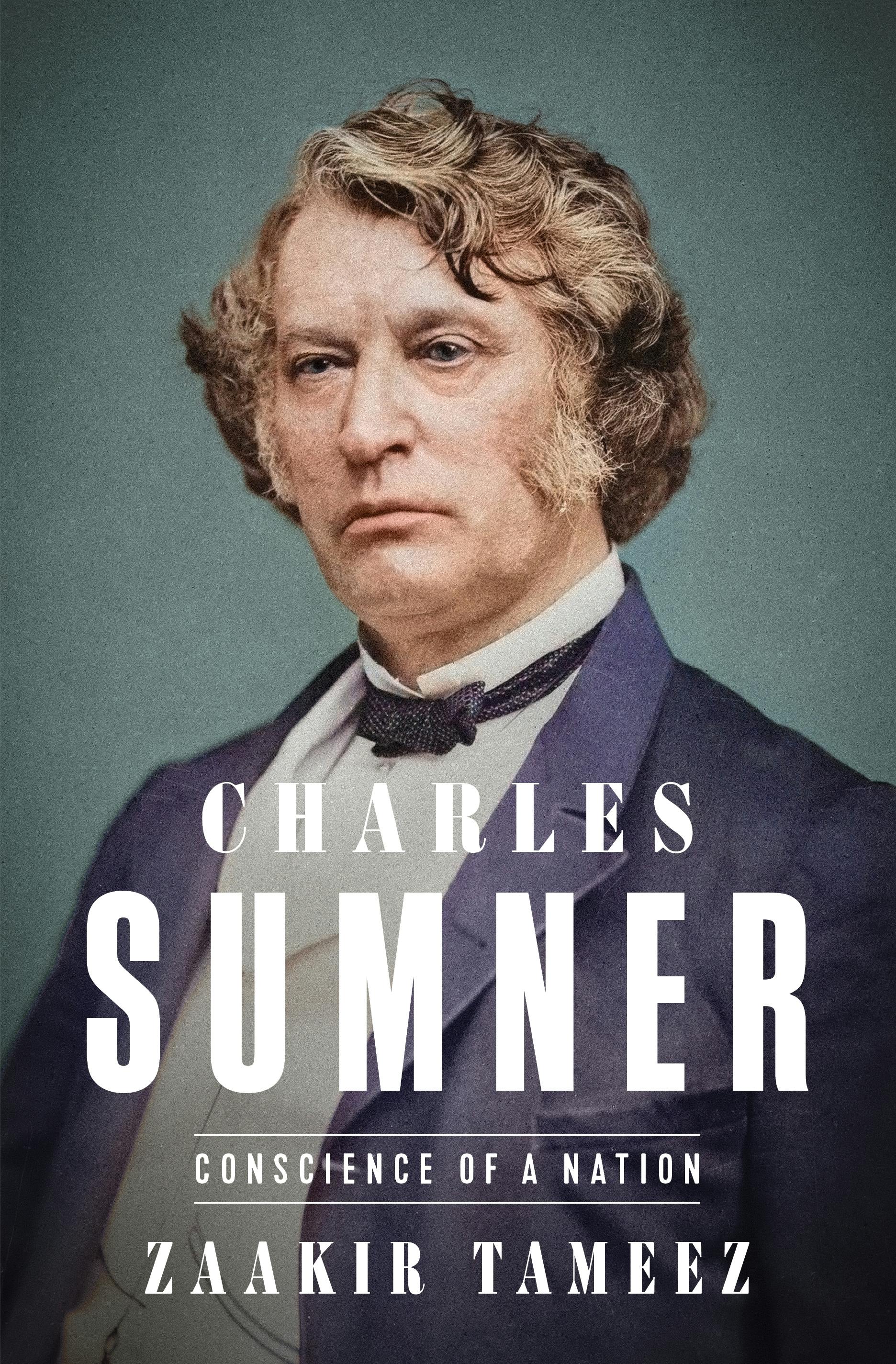Sumner is one of those historical figures who looks better from the safe distance of knowing how things turned out. He was the Senate’s counterpart to John Brown, the messianic abolitionist who channeled the God of the Old Testament to reach a conclusion later associated with Lenin and other secular revolutionaries: that the worse things got, the better they got. The status quo must be broken and discredited before its crimes could be corrected and a new order established. Brown took up weapons to wage war against slavery, and in doing so he caused white Southerners to conclude that the institution on which their way of life depended could not be safe within the American republic. Sumner produced the same effect with the speeches he gave on the Senate floor. One in particular made Sumner’s national reputation, albeit inadvertently.
Zaakir Tameez’s thorough, well-crafted biography walks us through Sumner’s years of preparation in Massachusetts. The pace quickens when the Massachusetts legislature elects Sumner to the Senate as a rebuke of Daniel Webster, who had voted for the Compromise of 1850, which included a stiffened Fugitive Slave Act. Sumner’s constituents expected him to pick up where John Quincy Adams, recently deceased after years of assailing slaveholders from his seat in the House of Representatives, had left off. Sumner was slow to find his voice, but in 1856 he delivered a speech that shocked his Senate colleagues for the insults and invective it contained.
Sumner knew he was asking for trouble. He knew he was crossing the bounds of Senate protocol. He was warned by allies to watch his tongue. He ignored them. "There is a time for everything," he said. "When crime and criminals are thrust before us, they are to be met with all the energies that God has given us—by argument, sarcasm, scorn, and denunciation. The whole arsenal of God is ours, and I will not renounce one of the weapons, not one."
The weapon that drew the most attention was sexual imagery and innuendo. The recent successful effort of the South to open frontier Kansas to slavery was "the rape of a virgin territory," Sumner said. He likened one of the sponsors of the Kansas bill, Andrew Butler of South Carolina, to the deluded, decrepit Don Quixote of literature. Quixote had mistaken a prostitute for a damsel to defend. Butler was doing likewise, having chosen for his fair lady "the harlot, Slavery." Butler himself was absent during Sumner’s speech, having suffered a stroke. Sumner used Butler’s disability against him. "Even his white head ought not to protect him from rebuke," Sumner said. An aftermath of the stroke was a speech impediment, which Sumner mocked as "loose expectoration."
